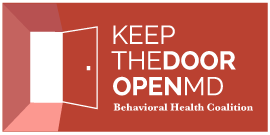47 ABC – Keep The Door Open. It’s a call growing louder in Maryland to keep the door to behavioral health treatment open to those who need it.
Because right now the way the behavioral health treatment system is set up in the state the quality is ranked amongst the highest in the country, but public health providers need a little more help to ensure the availability.
Shannon Hall, Executive Director Community Behavioral Health Association of Maryland, someone who’s on the front line fighting for funding.
“In Maryland we’re facing as we are in the country as a whole, we’re facing a real behavioral health crisis and things are changing here and so as demand is rising the community capacity needs to be able to expand to address that need,” Hall said.
Right now her focus is supporting legislation in the Maryland statehouse that would address that crisis.
“The keep the door open act is really going to help invest in the community mental health and substance abuse capacity in Maryland by indexing, tying the reimbursement for providers to inflation of the rising cost of care,” Hall said.
That reimbursement is needed because unlike hospitals or urgent care clinics public behavioral health clinics are funded differently through the state.
“Most other parts of health care the providers get paid because they negotiate a rate or they’re paid in a formula through the state that covers the cost of care behavioral health, this doesn’t happen,” Hall said.
So instead behavioral health must come hat in hand every year to ask legislators to go in and increase the rate.
Last year a measure couldn’t be agreed on in time to pass as law.
This year Hall is hopeful it will change.
If it doesn’t Hall says many public behavioral health clinics will continue to operate at a deficit.
“So what that means is for providers like Go-Getters, the costs rise every year but the reimbursement doesn’t and that pretty quickly puts the providers in a math problem,” Hall said.
That math problem means many who need treatment are stuck on waiting lists and in turn those seeking help end up elsewhere such as hospitals.
“They’re getting arrested, getting hospitalized and all those things are costing the state money because we’re not doing the underlying linking to care and addressing the care in the community,” Hall said.
In fact in 2015 alone Medicaid admissions at hospitals accounted for over half of the Medicaid admissions or to put it into dollar terms $1.1 billion.
Hall projects for every dollar invested in behavioral health services that will save tax payers seven dollars in future costs.
“I hope that the government help fund more programs because we need it man, there’s a lot of people walking out there in the streets that haven’t been diagnosed yet they have mental illness and have nowhere to go,” said 52-year-old Charles Green diagnosed as bipolar-shizoeffective.
Green said he understands to evoke change people must speak up.
“I’m glad that I’m mentally ill cause have a voice nowbefore, back in the day they locked you up and threw away the key with mentally ill people now we have a voice, we can have rallies, we go up to Annapolis have rallies and stuff,” Green said.
Sen. Jim Mathias (D), who is a sponsor on the bill said the measure passed unanimously out of the Senate Finance committee with bi-partisan support. He adds he is cautiously optimistic the measure will pass this year.
